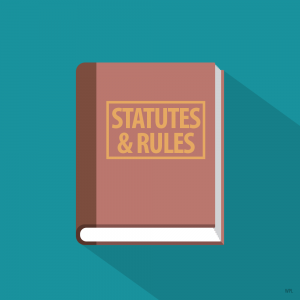 BY KENNETH TODD, PE, FBPE CHAIR (2019)
BY KENNETH TODD, PE, FBPE CHAIR (2019)
It has come to the attention of the Florida Board of Professional Engineers that there is a misunderstanding concerning the interpretation of two rules involving final engineering documents submitted to governments.
I hope that this article will clear up the confusion and keep a professional engineer who is licensed in Florida and dealing with government entities from having a complaint filed against her or him.
So, let’s delve into the two rules in question.
The first rule deals with the signing and sealing of final engineering documents prepared by government engineers for the government agency that employs them. Sections 471.001 and 471.003(1), Florida Statutes, clearly spell out that only a professional engineer shall practice engineering in Florida. The term “engineering” is further defined in Section 471.005(7), F.S., which includes the design of engineering works.
Rule 61G15-23.001(1)(a, b), Florida Administrative Code, requires that a professional engineer sign and seal all plans, prints, specifications, reports, or other documents issued for public record, or final documents provided to the owner, which would include a government agency. Engineering documents and public record are defined in Rule 61G15-30.002(4, 6, 7), F.A.C.
The fact that the design and the documents were done “in house” by a government employee for a government agency is irrelevant. Government engineers are required to sign and seal final engineering documents prepared by them for the construction of a government project. Failure to do so can bring about a formal complaint against the engineer of record, which is defined in Section 61G15-30.002(1), F.A.C. Grounds for disciplinary action for engineers who violate this rule are listed in Sections 61G15-19.001(4) and 61G15-19.001(6)(l), F.A.C.
Additionally, Section 61G15-19.001(4), F.A.C., deals with the engineer who approves and seals documents that don’t conform to acceptable engineering standards to safeguard the health, safety, property, and welfare of the public. Section 61G15-19.001(6)(l), F.A.C., deals with the failure of a professional engineer to inform her or his employer of her or his responsible supervision and responsible public authority, if the public health and safety is threatened. This can occur when an unqualified lay authority overrules the engineer of record’s responsibility to adhere to the law concerning the signing and sealing of construction drawings, specifications, reports, etc.
The second area of confusion deals with Florida Building Code training that is required by Chapter 471.0195, F.S., for engineers who are involved in the preparation of final engineering documents that are submitted to the local building departments.
This statute states that engineers who actively participate in the design of engineering works or systems in connection with buildings, structures, or facilities and systems covered by the building code shall take continuing education courses and submit proof to FBPE in a manner as established by the Board. In Section 61G15-18.011, F.A.C., the Florida Building Code is defined, and Section 61G15-22.001, F.A.C., states that licensees actively participating in the design of engineering works or systems described in Chapter 471.0195, F.S., shall complete at least one FBC course within 12 months of the effective date of each edition of the Florida Building Code.
The rule further states that the engineer must provide a copy of the certificate of completion for said course to the FBPE. This course may count toward the regular continuing education requirement for area of practice. The courses must have been completed before any drawings are submitted to the local building department.
Kenneth Todd is a licensed Professional Engineer in Florida. He recently retired as water-resource manager for Palm Beach County and plans to begin consulting. Mr. Todd is serving his second term on the Florida Board of Professional Engineers and has been Board Chair since December 2017.

